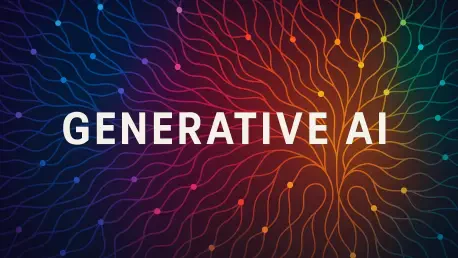Imagine using an app to chat with a virtual assistant that offers instant help but leaves you questioning its authenticity and reliability. Generative AI is already a reality, yet not everyone is enthusiastic about embracing it. Some individuals remain skeptical, wary of how these advanced systems could reshape their lives. Amid this technological evolution, a crucial question emerges: why do some people resist using generative AI?
Understanding the Resistance: How Does Generative AI Affect Our Choices?
The prevalence of generative AI in routine tasks illuminates its significance in modern life, raising questions about its potential influence. AI’s increasing integration into daily activities, from writing and art to financial advice, showcases its usefulness but also its controversial nature. Picture someone facing a choice to prepare a report manually or use AI to generate it—some may choose the former, valuing human touch over technology. Such scenarios highlight a crossroad faced by many, wondering how much technology to allow into their choices.
The Impact of Generative AI on Society and Personal Life
As AI tools advance, their societal impact is undeniable. These technological shifts inevitably lead to changes in job markets, educational approaches, and ethical norms, requiring people to adapt. The possibility of AI automating roles once performed by humans fuels both curiosity and fear, creating tension between innovation and job security. Moreover, the educational landscape evolves with AI-assisted methods, challenging traditional learning processes. Understanding resistance to AI is vital to ensuring these technological advances do not outpace societal readiness.
Delving into the Core Concerns: What Drives Resistance to GenAI?
Many fear GenAI-generated content might be inaccurate or misleading, raising doubts about its dependability. Ethical issues further complicate AI’s role, where legality, honesty, and morality come into play. Concerns about privacy are poignant, with worries about data security during AI interactions. Some individuals lament the loss of human connection, as AI threatens to replace genuine interactions with machine simulations, altering the fabric of personal exchanges.
Insights from Research: What Do Experts and Studies Reveal?
A study by BYU professors Jacob Steffen and Taylor Wells sheds light on the motivations for resisting GenAI. Their research highlighted that fears about AI’s output quality, ethical implications, and privacy risks resonate with many. AI experts echo concerns regarding data security, while educators voice apprehension over potential impacts on learning. Real-world experiences demonstrate varied interactions with AI, underscoring the importance of informed engagement.
Navigating the AI Landscape: Strategies for Thoughtful Engagement
Embracing AI responsibly requires practical strategies. Critical evaluation of AI’s intended use is necessary to achieve desired outcomes effectively. Users are encouraged to assess AI tools by considering ethical, technical, and personal alignment. By applying a framework that balances AI’s potential and pitfalls, society can incorporate AI while preserving essential human elements.
Fostering a balanced attitude toward GenAI adoption means advocating for mindful evaluation of its applications. As AI continues to advance, cultivating thoughtful engagement and conscious societal dialogue becomes crucial to harmonize technological progress with human values. This careful consideration could guide the meaningful integration of AI innovations while addressing concerns amid ever-evolving digital landscapes.









